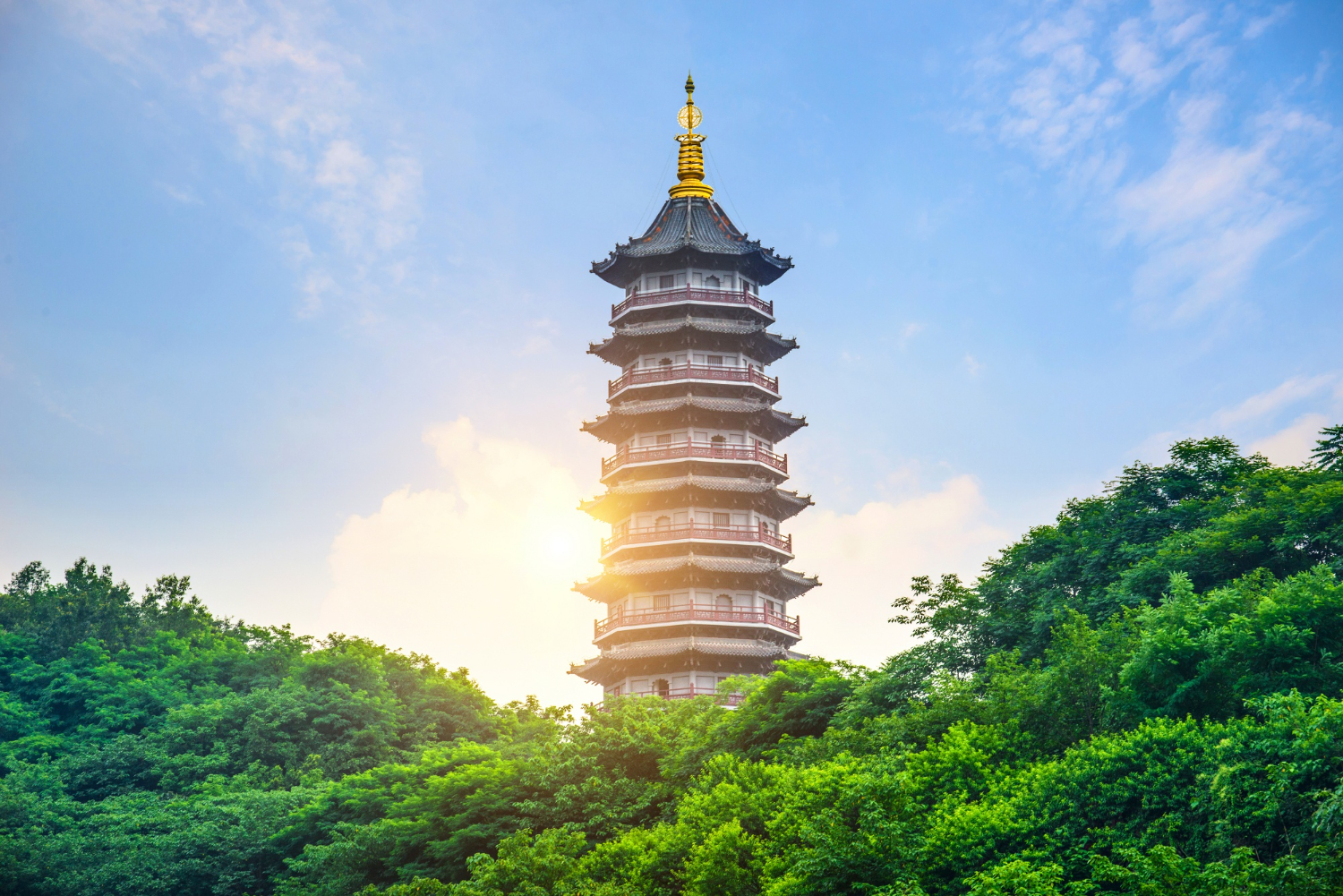Investors love story for it helps string a chain of complex ideas into a single, easily digestible tune. And if the narrative resonates with personal thinking, often, we are prepared to give higher weightage to the source.
Such a scenario is not far from confirmation bias theory, where people tend to favour information in sync with their personal beliefs. At Pika World, we aim to break such a chain and to do so, we hope this edition of Pika World Commentary brings you insights of our latest review on Chinese stocks and psychology from leading articles and thought leaders.
Moving the Mountains and Hills
No tasks can be daunting in the face of the central government in China. The system allows the swift enactment of policies that affect society’s social and market spheres. For that, market participants have been in a jitter. Some fled the market and invested in other emerging markets, while others doubled their investments.
Does Pika World think that investing in China is unsound? The clear answer is No. Rather, we believe it has become more complicated than previously thought.
Socio-economic Policy at Stage
The modern economy of China is one with an Asian flavour. It is based on a very pragmatic approach to societal norms and needs. To achieve that, government raise resources from and through the market. Hence, a systematic socio-economic view of the current Chinese market climate may reveal more opportunities than fear sentiments.
As President Xi is expected to move into the third term, there is a desire to strengthen the power of the Communist Party to solve the urgent public dissent. In addition, we have seen the growing call for “common prosperity” that blends the need for social welfare coupled with national security concerns through regulation that impacts critical segments of the economy: technology, education, property and the healthcare sectors.
Achieving this goal requires more than bold dreams. And we saw that realising in actions. The blocking of the AnT Group IPO had overhauled much of its fintech business model, which some see as displeasure to the outspoken leader, Jack Ma.
Then the ever-rising education tuition costs weaken the social ladder, marking the disparity of opportunities between different income families more pronounced, leading to the policy of turning after-school tutoring into non-profit entities.
There seems to be no tolerance for disobedience to regulators. Didi Global is one such example, where the Chinese government is taking a review of its data days after the company went public in the US.
Investors are playing catching up to the pace and breadth of the measures. Even key China enthusiasts are assessing their initial view of the Chinese markets. Those who stay focused on the solid fundamentals and impressive growth ahead. Yet, markets are about all “animal spirit”, which, once tamed by regulations, often send chilling winter season as seen in stock prices.
To be Greedy or to be Fearful?
According to one of Warren Buffett’s adages, we should be greedy when others are fearful. The KraneShares CSI China internet exchanged-traded fund (KWEB) has tanked by about 45% for the past 6 months. Alibaba (BABA) alone has fallen by around 30%. Education leaders like New Oriental Education & Technology (EDU) and Tal Education (TAL) lost up to 90% of their share price within the same period.
EPFR Global had indicated that just looking at the first two weeks of August, we have seen investors pulled about $3 billion out of China.
So, should we follow the famous adage or abandon the once-viewed oasis?
Pika World believes that market participants should not ignore the $15 trillion economy that has 1.4 billion people, home to some of the world’s most innovative companies and a burgeoning middle-class that is moving to become a high-consumption society than before.
Economists that study the modern economy of China can relate the shift engine of an export-oriented economy to a transformative domestic consumption economy that rely more on service-oriented growth to power its next chapter of a prosperous society.
Along this line of thought, Pika World, therefore, sees more value in first understanding the risks, their magnitude and nature.
The Emperor of Guiding Torch: A risk-based Approach
If the two largest economies see an economic clash, it will unbox many risks. Political risks might be difficult to hedge, and so is the creative societal disruption that is hard to re-ignite once muted.
A robust consensus among Democrats and Republicans in the US is on the strict approach against China on various issues: human rights abuses and increased scrutiny of Chinese companies listed in the US as ADRs.
Market participants have long dismissed the threat by the Securities and Exchange Commission (SEC), paving the route for Chinese companies to be delisted should they fail to meet the US auditing standards.
This week, SEC Chairman Gary Gensler has repeatedly warned investors that they are underestimating the risks of investing in Chinese ADRs. Pika World shared similar concerns.
Large Chinese companies have long used Variable Interest Entities (VIE) to sidestep China’s foreign ownership rules. This means investors of ADRs own shares of a shell company that has a contract with the Chinese business through this complex corporate structure. Such a shell company does not have absolute rights over the parent company.
With the growing uneasiness, institutional investors are less tolerant on the risk of investing in such ADRs, given the Chinese government’s scrutiny of the VIE structure. This prompted many money managers to sell ADRs and shift their capital into the related companies’ shares listed in Hong Kong.
Today’s risks are not new
If we are to review back regulations by the Chinese government, we can comfort that today’s rigid rules are passing torrential rains into the future’s rainbow. Nevertheless, the anti-corruption drives profoundly impacted the luxury and casino stocks in 2012-2014.
The further crackdown on the online gaming industry during 2017 has also impacted the then-vibrant growth of game developments. However, all this has not dampened the growth of Tencent. On the contrary, the company grew more robust. As Pika World had reviewed in “Your Afternoon Quick Read – 20 July 2021″, Tencent has become a stronger company as it sets foot into the global foray but invests in UK-based game makers, which broadens its revenue base geography.
Then, what is of concern here?
Unlike those crackdowns seen in 2012-2017, the current episode has a broad-based impact and appears to be driven by multiple regulators that are less coordinated among each other. Unfortunately, this means as an investor, there is not a single playbook that is dependable.
Short and Medium-Term Headwinds to Stay
Among the many entangled items, Pika World believes the strict data-privacy laws on anti-competitive behaviour are the key catalyst for many internet behemoths’ brighter future. It will end the old school’s exclusivity agreements that small merchants are trapped to comply with when hosting on different internet platforms and the crackdown on algorithms that shaped consumer behaviour.
The social face of the latest policy also aims to uplift the compensation for gig works and extend firmer control over the content and entertainment part of the market. However, Pika World also expects more headwinds to arrive, including completely eliminating the preferential tax treatments that internet companies have been enjoying and heightening pressure on businesses to contribute more towards Corporate Social Responsibility (CSR) efforts.
A brighter future awaits Us
Taking a long-term view will allow us to take a breather. The latest regulation may bring us to a more sustainable path for the internet sector, in which intense price wars and effortless subsidies have coloured and tainted the industry.
While the sea of changes is set to motivate a reassessment of big companies in China, Pika World believes that private sectors remain a vital pillar of the Chinese economy. In fact, we believe joint ownership by state companies could even be a plausible path to address the uneasiness by state government on big tech firm ownership of key domestic population behaviour data.
The first page of such reality reads ByteDance, which owns the current hotcake social media, TikTok. Recently, a government-owned entity had invested in the company, hinting at the shape of investment between government and private companies.
More importantly, Pika World believes that as China aims to reduce its dependence on the US, it is even more imperative that its internet behemoths are not destroyed as they are the fertile soil for advanced technologies, especially in applied artificial intelligence.
Today, the private sector holds about 90% of urban employment. Consistent with our analysis of China’s transformation into a consumption economy, the current digital economy that accounts for 40% of China’s GDP is expected to take off further. Given the wildcard of Covid that is starting to create a hangover effect on China’s economy, the downside risks to more intensive regulation is greater even as we acknowledge regulators are willing to take on more pain towards the economy.
Therefore, if a prudent investor may not overlook China, then one could take comfort in another old adage, that time in the market is perhaps more critical than timing the market.





More Stories
China’s Feb Inflation Data shows Deflation Risks Persist
Why Is China Holding Back on Large-Scale Fiscal Stimulus?
China on the horizon, for better or worse?